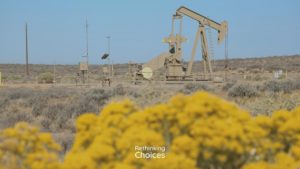I want to start writing a piece each week or so about things that made me think.
This week, it was the collapse of cryptocurrencies.
The cryptocurrency world lost about a trillion dollars. People tend to say when such large losses happen that these are only paper losses. This is never true. Someone somewhere would have put their life savings into cryptocurrencies or made plans based on the value of the cryptos they owned. These losses are always very real.
The collapse started with Terra and Luna. These are two cryptocurrencies meant to stabilise each other like the earth and the moon.
It works like this. Terra is meant to be always worth one US dollar. This way, a merchant can accept Terra for goods or services just like accepting US dollars. A Terra taken in payment, in principle, will always be worth precisely one US dollar.
What stops one Terra from ever being worth more or less than one US dollar?
This is where Luna comes in. Cryptocurrencies are made by computer programs. They are governed by sets of rules embedded in the programming codes. The rules for Terra stipulate that one Terra can always be exchanged for one US dollar’s worth of Luna.
If you find that someone is willing to pay two US dollars for a Terra, because of this rule you can buy one US dollar’s worth of Luna and use the computer code to change it into one Terra. You can then make a dollar profit by selling the Terra for two US dollars.
If instead someone is willing to sell one Terra for fifty cents, you can buy the Terra from that person with fifty cents and use the computer code to change it into one dollar’s worth of Luna. You can then sell the Luna and make fifty cents profit.
So, as long as people are interested in making profits, one Terra should always be worth one US dollar.
The problem this week is people started to put having actual US dollars ahead of making profits between Terra and Luna.
For the past few months, people are believing that the paths to the future are no longer smooth. Central banks have started increasing interest rates for the first time in the best part of a generation, since the Global Financial Crisis in 2008, in fact. Policymakers are no longer willing to do “whatever it takes” to make sure people never lose out on their investments.
As a result, just to be safe, people may have started to cash out.
Tesla’s market value dropped by $450 billion since March this year. Vestas, one of the most established wind turbine makers, lost a third of its market value in a similar period. Without central banks backing off from guaranteeing all investments, having some cash in hand is looking like a better choice than chasing to make as much profit as possible.
In this world, people started to sell Luna simply to have actual US dollars and not to make money from Terra. This broke the relationship between Terra and Luna and forced the computer code to be stopped. This developed into a rout that took other cryptocurrencies with it. The cryptocurrency world imploded losing half of its total value — a trillion dollars.
This led me to think what is it that really defines the value of our assets? In the Terra and Luna world, “stuff” is priced in Terra, but the value is guaranteed by Terra always being worth one dollar’s worth of Luna.
So what is the guarantee that makes stuff in our real-world worth the value we think they do?
When we buy a house for $1 million, we generally have to borrow money. What makes it truly worth a million is not that we can borrow one million dollars, but that if anything happened to the house, insurance will pay us a million dollars.
The real value of the house is what the insurance is willing to pay out.
Just as the value of the Terra and Luna are tied to each other, the strength of our insurance is tied to the value of the assets insured.
To be able to make the payout, insurance companies invest the premiums we pay to make sure they can cover it. This means they basically invest in all the things we need insurance for. They need investments to be worth a lot to be able to pay.
If we start selling those assets for safety, it will hurt insurance companies, and they may not have enough to meet the payouts. If that happened, without insurance, the assets would be worth much less and trigger more people to sell.
Equally, if there are too many claims, the insurance companies may stop providing cover or increase the premiums so only a few can afford them. Without insurance, the value of our assets will again fall.
This is the real economic risk of climate change.
Climate change makes the path to the future more and more uncertain. This will prompt us to be safe with our money rather than to pursue profit above all else. It will also make claims more likely, as fires, floods, storms, and so on all make damages more likely.
It is all bad news for insurance.
Yes, climate change does mean we will lose our plants and animals.
Yes, climate change does mean our coastlines will be lost to rising seas,
But even before those things happen, our economy may well have imploded.
This is why climate change matters to everyone. It is not because we may lose one or two percent of economic growth, but we may lose the entire economy.
This is why climate change matters to everyone. It is not because we may lose one or two percent of economic growth, but we may lose the entire economy.
Everyone losses when our economy implodes; rich and poor alike, individuals and businesses. That is a risk we cannot afford to take.
The only way to protect this is to cut our emissions now.



